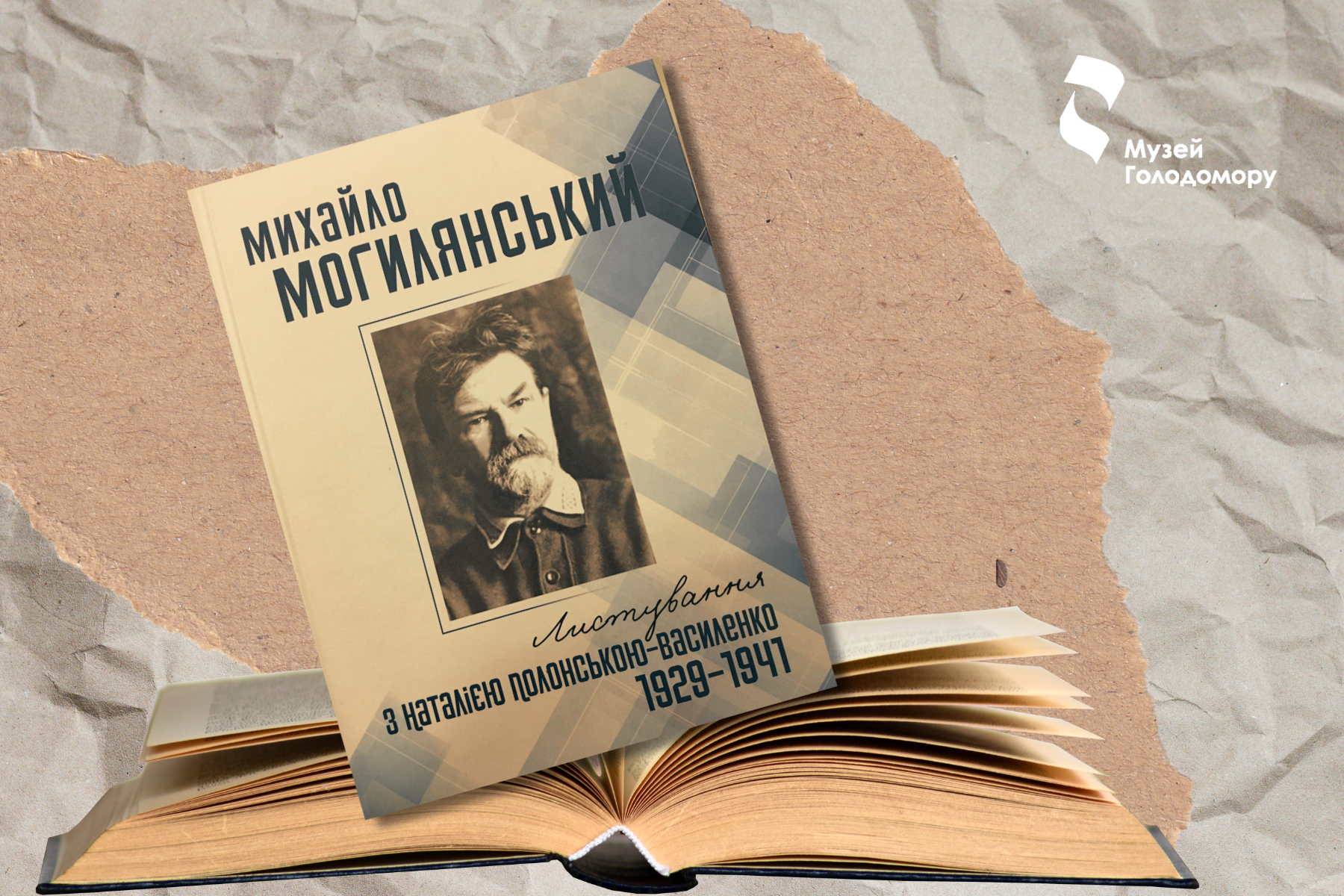Replenishment of the museum library: “Mykhailo Mohylianskyi. Correspondence with Natalia Polonska-Vasylenko 1929–1941”
Our museum book collection has been replenished with the new edition “Mykhailo Mohylianskyi. Correspondence with Natalia Polonska-Vasylenko 1929–1941”. We received the book from Anzhela Savchenko and the compiler of the collection Victoria Serhiienko, candidate of historical sciences, and research associate of M.S. Hrushevsky Institute of Ukrainian Archeography and Source Studies.
The edition includes 125 letters from the writer and literary critic Mykhailo Mohylшanskyi to the historian Natalia Polonska-Vasylenko, stored in the Central State Archive-Museum of Literature and Art of Ukraine, as well as several still unpublished stories and essays by Mohylianskyi. The letters reflect Mohyliansky’s life and activities against the background of the complex political realities of the time.
The author of the concept of genocide, Raphael Lemkin, analysing the genocidal policy of the communist totalitarian regime towards Ukrainians, emphasised that Moscow’s first blow was directed precisely at the brain of the nation – the Ukrainian intelligentsia – in order to paralyse and decapitate the rest of the national organism. Therefore, throughout the 1930s, repressive pressure was exerted on Ukrainian science and culture representatives. Ukrainian researchers were subjected to an ideological and political purge, which was purposefully organised by the Stalinist regime, fearing potential oppositional sentiments in the Ukrainian scientific environment.
In the early 1930s, the case of the “Union for the Liberation of Ukraine” was fabricated. A significant number of employees of the All-Ukrainian Academy of Sciences (UAS), including academics, were accused of fictitious crimes against the Soviet state and repressed. At the same time, consistent pressure and persecution of other academic figures continued, who were forced to live and work under the permanent pressure of the totalitarian system.
Mykhailo Mohylianskyi, a researcher at the Ukrainian National Academy of Sciences, worked with Natalia Polonska-Vasylenko in the Commission for the Compilation of the Biographical Dictionary of Ukrainian Figures of the Academy, which he headed. In 1933, the commission was liquidated, and its head was dismissed.
In his epistolary legacy, Mohyliansky briefly mentioned the scholars’ dependence on the Soviet food rationing system (introduced in 1929), which, especially during the Holodomor-genocide years, did not provide normal food needs. The monopoly of the communist regime on the procurement and centralised distribution of food was a powerful tool of control and accounting of broad sections of Soviet society and, at the same time, a means of punishing persons inconvenient for the authorities. In one of his letters from January 1933, he noted that “the only reason why I lost so much weight was insufficient intake of food items.” What’s more, being under the pressure of the authorities, Mykhailo Mohylianskyi was generally deprived of an appropriate food ration, which, in the conditions of that time, put a person on the verge of starvation.
Since the biography of Mykhailo Mohylianskyi is poorly researched, Victoria Serhiienko, the compiler and a candidate of historical sciences, pays maximum attention and calls her scientific investigation “an attempt to understand why the personal and scientific biography of two people, who are not as different as it might seem, turned out so differently ” in her introductory article.
The book will be of interest to historians, researchers, literary experts and a wide range of readers.
